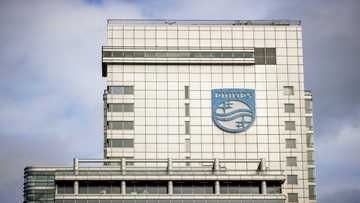Business and consumers hamper climate fight: report

Source: AFP
PAY ATTENTION: Enjoy reading our stories? Join YEN.com.gh's Telegram channel for more!
Corporations and consumers are the main obstacle to the emissions cuts needed to keep global warming to the 1.5-degree Celsius limit, researchers said Wednesday, adding that "positive signs" in other areas are not yet enough to meet climate goals.
The report by a multidisciplinary team of researchers warned that staying within the 1.5C goal was "not plausible", but that this could change if societies stepped up their efforts to cut emissions.
"We see all kinds of positive signs, for example, the political protests, divestment decisions, climate litigation cases, transnational initiatives, this is all on the rise," said one of the study authors Anita Engels. "So you could think that we are really on a good track."
But she added: "We need to do so much more".
The report, the Hamburg Climate Futures Outlook, assessed the plausibility of achieving the emissions reductions necessary to limit temperatures in line with the Paris Agreement.
That 2015 deal saw nations agree to limit global warming to well below two degrees Celsius since pre-industrial times, preferably 1.5C.
PAY ATTENTION: Click “See First” under the “Following” tab to see YEN.com.gh News on your News Feed!
Researchers looked at 10 societal factors that they considered to be the most important drivers of decarbonisation and found that currently none are yet at a level that would lead to the dramatic emissions reductions needed by 2050.
Media 'ambivalent'
Using global databases and computer modelling, the authors found that seven social trends were moving tentatively in the right direction -- including United Nations climate governance, regulation, litigation, and divestment from fossil fuels.
One -- the media -- was seen as "ambivalent".
But the two heading in the wrong direction were corporate responses and consumption patterns, which the researchers said "continue to undermine the pathways to decarbonisation".
The two are closely interlinked, said Engels.
"It would be so much easier if the way the products are produced is regulated in a way that (consumers) are not forced to buy climate destructive products," she told AFP.
The report said it was still too early to assess the potential impact of recent events such as Russia's invasion on Ukraine.
Researchers also looked at six physical processes around the planet, from the melting of ice sheets to fears that a deforested Amazon rainforest will transform into savannah.
Jochem Marotzke from the Max Planck Institute for Meteorology said that these and other physical processes were important, but that "we're not on a slippery slope".
It was human agency that would prove most decisive, he said.
New feature: Сheck out news that is picked for YOU ➡️ click on “Recommended for you” and enjoy!
Source: AFP



